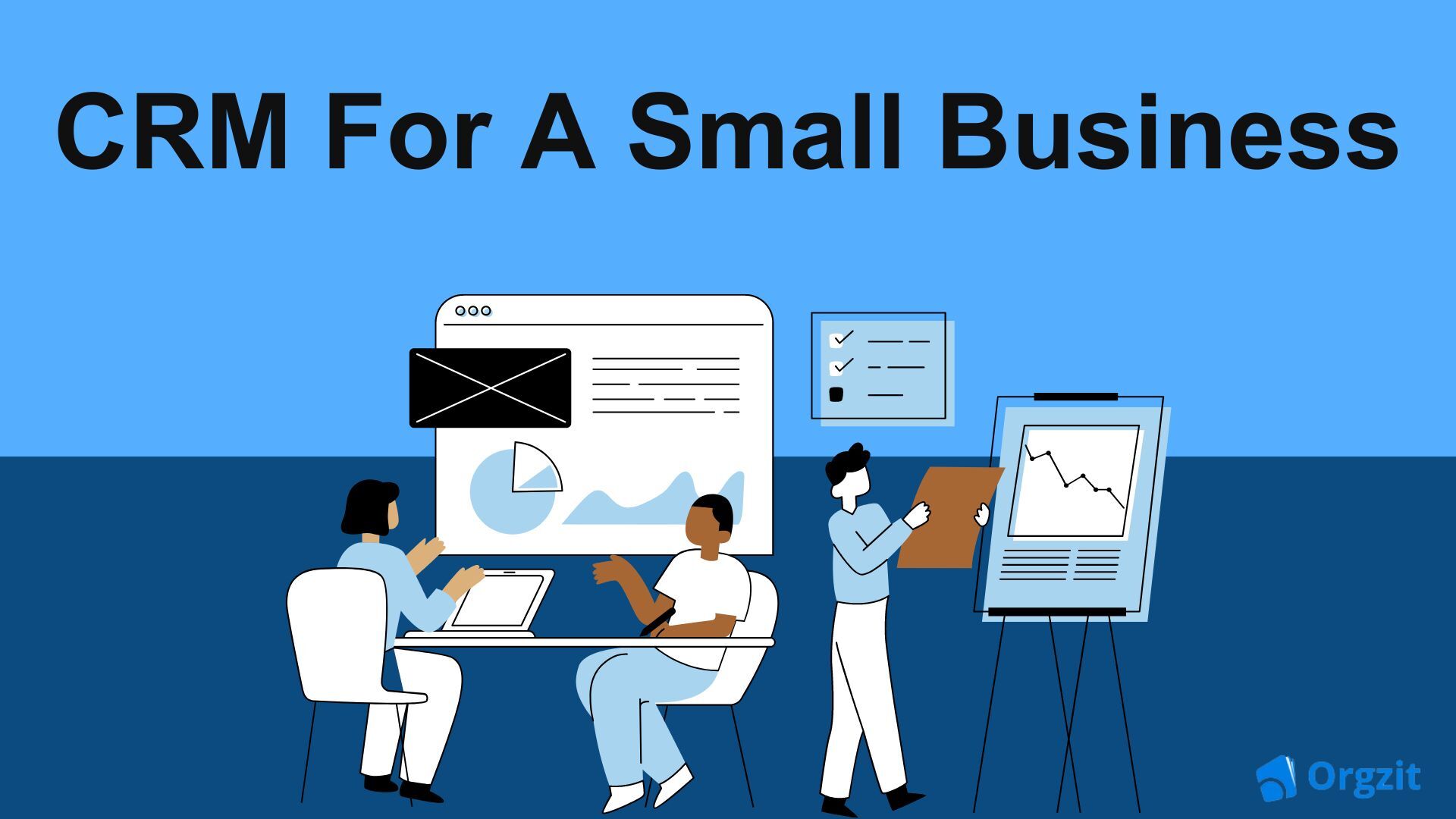Crm and accounting for small business – In the competitive landscape of today’s business world, CRM and accounting stand as indispensable pillars for small businesses seeking growth and prosperity. These systems empower businesses to manage customer relationships, streamline financial operations, and gain invaluable insights that drive informed decision-making.
CRM and accounting software, when seamlessly integrated, offer a plethora of benefits for small businesses. They enhance efficiency, boost accuracy, and elevate customer service, laying the foundation for sustainable growth and success.
Benefits of Integrating CRM and Accounting

Integrating CRM (Customer Relationship Management) and accounting systems can provide significant benefits for small businesses. By seamlessly connecting these two critical systems, businesses can streamline operations, improve data accuracy, and enhance customer service.
One of the key benefits of integrating CRM and accounting is improved efficiency. When data is shared between the two systems, businesses can eliminate manual data entry and reduce the risk of errors. This saves time and resources, allowing businesses to focus on more strategic tasks.
Another benefit of integration is improved accuracy. By ensuring that data is consistent across both systems, businesses can minimize the risk of errors and ensure that financial reporting is accurate and reliable.
Finally, integrating CRM and accounting can enhance customer service. By having access to a comprehensive view of customer interactions and financial data, businesses can better understand their customers’ needs and provide personalized service.
Case Studies, Crm and accounting for small business
Numerous small businesses have successfully integrated CRM and accounting systems to improve their operations. For example, a small manufacturing company implemented a CRM system to track customer interactions and sales opportunities. By integrating this system with their accounting software, they were able to automate the creation of invoices and track customer payments, significantly improving their efficiency and accuracy.
Another example is a small retail store that integrated their CRM system with their accounting software to gain a better understanding of their customers’ buying habits. By analyzing this data, they were able to identify trends and develop targeted marketing campaigns that increased sales and improved customer loyalty.
Key Features of CRM and Accounting Software for Small Businesses

Selecting the right CRM and accounting software is crucial for small businesses. These tools can streamline operations, enhance customer relationships, and improve financial management. Here are the key features to consider when choosing software:
CRM Software Features
- Contact management:Store and organize customer data, including names, addresses, and contact information.
- Sales tracking:Track sales opportunities, manage leads, and monitor progress through the sales pipeline.
- Marketing automation:Automate marketing campaigns, send emails, and track results.
- Customer service:Manage customer interactions, track support requests, and provide timely assistance.
- Reporting and analytics:Generate reports on sales, marketing, and customer service performance.
Accounting Software Features
- General ledger:Track financial transactions, record income and expenses, and generate financial statements.
- Accounts receivable and payable:Manage invoices, payments, and customer and vendor accounts.
- Payroll:Process payroll, calculate taxes, and issue paychecks.
- Inventory management:Track inventory levels, manage stock, and optimize supply chain.
- Financial reporting:Generate financial reports, including balance sheets, income statements, and cash flow statements.
Comparison Table
| Feature | CRM Software | Accounting Software ||—|—|—|| Contact management | Yes | No || Sales tracking | Yes | No || Marketing automation | Yes | No || Customer service | Yes | No || Reporting and analytics | Yes | Yes || General ledger | No | Yes || Accounts receivable and payable | No | Yes || Payroll | No | Yes || Inventory management | No | Yes || Financial reporting | Yes | Yes |
Case Studies and Success Stories: Crm And Accounting For Small Business

Integrating CRM and accounting systems has proven highly beneficial for numerous small businesses. By sharing real-world examples, we can gain valuable insights into the challenges faced, solutions implemented, and the positive outcomes achieved.
One such success story is that of a small retail business. They faced challenges in tracking customer interactions, managing inventory, and reconciling financial data. By implementing a CRM and accounting system, they streamlined their processes, improved customer relationships, and gained better control over their finances.
Increased Sales and Improved Customer Satisfaction
The CRM system enabled them to capture and manage customer data effectively, providing a comprehensive view of customer interactions. They could now track sales history, preferences, and touchpoints, allowing them to tailor personalized marketing campaigns and enhance customer experiences. This resulted in increased sales and improved customer satisfaction.
Streamlined Inventory Management and Reduced Costs
The integration with their accounting system allowed them to automate inventory tracking and reduce manual errors. They could now monitor stock levels in real-time, optimize purchasing, and prevent overstocking. This led to reduced costs, improved efficiency, and better cash flow management.
Enhanced Financial Reporting and Compliance
The accounting system provided them with accurate and up-to-date financial data, enabling them to generate reports easily. This improved their financial reporting and compliance, ensuring transparency and accuracy. They could now make informed decisions based on real-time financial insights.
Concluding Remarks

Embracing CRM and accounting solutions empowers small businesses to overcome challenges, optimize operations, and unlock their full potential. By harnessing the power of these systems, businesses can gain a competitive edge, foster customer loyalty, and achieve long-term profitability.
Common Queries
What are the key benefits of integrating CRM and accounting systems?
Integrating CRM and accounting systems streamlines data flow, eliminates manual errors, enhances reporting capabilities, and provides a holistic view of customer interactions and financial performance.
How can CRM and accounting help small businesses grow?
CRM and accounting systems enable small businesses to manage customer relationships effectively, automate financial processes, improve cash flow management, and make data-driven decisions that drive growth.
What are some common challenges faced by small businesses when implementing CRM and accounting systems?
Small businesses may face challenges related to data migration, system integration, employee training, and ongoing maintenance costs when implementing CRM and accounting systems.